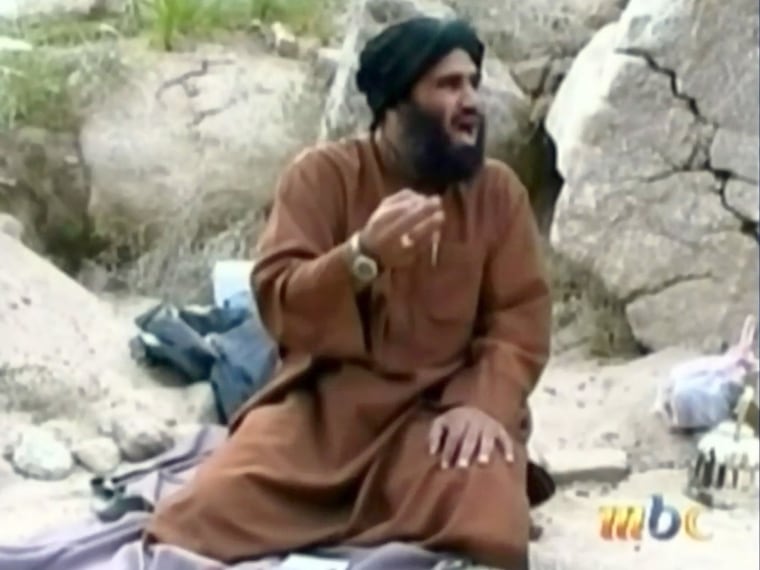When Osama bin Laden's son-in-law Sulaiman Abu Ghaith entered a 'not guilty' plea to charges of conspiring to kill Americans Friday at a federal courthouse in the Southern District of New York, President Obama came one step closer to honoring his 2008 campaign promise to close the prison at Guantanamo Bay--while re-opening a partisan divide that has stalled such efforts in the past.
In an indictment unsealed Thursday in New York City, federal authorities described Abu Ghaith as a business partner of al Qaeda leader Osama bin Laden and a spokesman for the organization. The indictment also alleges that Abu Ghaith "urged others to swear allegiance to Bin Laden, spoke on behalf of and in support of al Qaeda's mission, and warned that attacks similar to those of September 11, 2001, would continue."
The decision to try Abu Ghaith in federal court rather than before a military tribunal at Guantanamo, as is customary for suspected al Qaeda operatives, has not been commented on publicly by Obama administration officials, nor has the administration given detail on how Abu Ghaith arrived in the U.S. Jordanian sources confirmed to NBC News Thursday that Abu Ghaith was sent by Turkey to Kuwait via Jordan, where he was intercepted and transferred to New York City. He pleaded "not guilty" Friday and is scheduled to appear in court again on April 8. He's being held at the Metropolitan Correctional Center in downtown Manhattan.
The last time the Obama administration attempted to try an al Qaeda member with ties to 9/11--Khalid Sheikh Muhammad--on American soil ended with both Republicans and Democrats opposing the White House. Instead, alleged 9/11 mastermind KSM and four alleged accomplices are being tried in a military tribunal at Guantanamo Bay.
This time, a number of key Democrats whose withdrawal of support for a New York City trial for KSM in 2010 caused President Obama to move the trial to Guantanamo Bay, are publicly approving the decision to try Abu Ghaith in New York.
Dianne Feinstein, Chair of the Senate Intelligence Committee , issued a statement Friday saying, "I support the government bringing this prosecution in civilian court and expect that the federal prosecutors in the Southern District of New York will successfully prosecute Abu Ghaith and put him away for the rest of his life."
Feinstein cited other successful prosecutions of terrorists on American soil, including the "Blind Sheik" Omar Abdel Rahman, the "20th hijacker" Zacarias Moussaoui and "shoe bomber" Richard Reid.
New York Senator Chuck Schumer, who in 2010 urged high-level administration officials against trying KSM in New York, expressed tepid support for trying Abu Ghaith in New York on Thursday.
"In terms of New York security, I rely on [Police Commissioner] Ray Kelly, who I have a lot of faith in on the war on terrorism. I spoke to him and asked him if there is any danger to trying him in New York, and he said no," Schumer told WNBC.
"Unlike with KSM, Kelly and others had been consulted ahead of time about this and they gave the green light to do it. As you know, Ray Kelly, Mayor Bloomberg and I opposed the trial of KSM in New York and we successfully made sure that didn't happen. On issues like this, I defer to Commissioner Kelly, and I think the mayor does as well. And he thinks its ok to do it here, and I'll go by that," Schumer said.
Chair of the House Intelligence Committee Peter King (R-N.Y.) lauded the administration and intelligence community for apprehending the suspect, but warned against setting a precedent of bringing suspects to the U.S.
"My concern here is that I believe even though he gave a 22-page statement, when you have someone who was in the bin Laden inner circle, someone who was in Iran for so many years--and there's a lot more we can gain from him. And I don't care how good the interrogators are, in the brief a period of time, I don't think they would have got all out of him that they could have, Rep. King said on Andrea Mitchell Reports Monday. "Also as far as setting a precedent, if someone captured overseas who was in the bin Laden inner circle is going to get a civilian trial, then I don't know who is going to be tried in a military commission."
King told Mitchell that he believes Abu Ghaith will be convicted in the federal court and that "security threats in Lower Manhattan are nowhere near what they would have been if Khalid Sheikh Mohammad was on trial there."
Criticism over trying Abu Ghaith in New York City comes amid a heated debate over the Obama administration's use of drones to target al Qaeda members in the mideast, particularly in Pakistan and Yemen. Abu Ghaith's capture and render to the United States is a rare instance in which a suspect was captured rather than killed overseas.
Watch Andrea Mitchell's interview with Rep. Peter King here:
